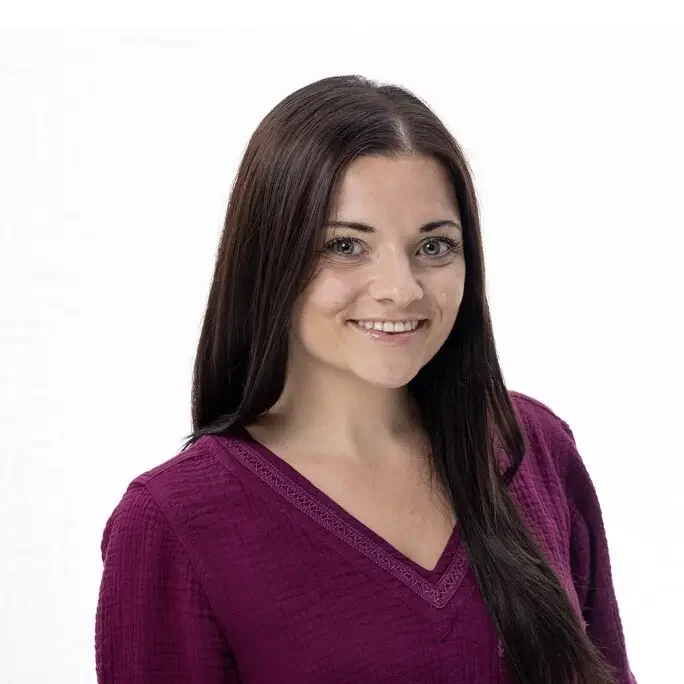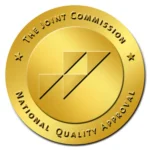Dual Diagnosis Treatment Centers
in San Diego, California
ORCA’s dual diagnosis treatment centers in San Diego provide men with the tools they need for lasting recovery. Contact us today to learn more about how we treat co-occuring disorders.
Comprehensive Care for Co-Occurring Disorders
At Oceanside Mental Health, we understand the complex relationship between mental health disorders and substance abuse. Our specialized dual diagnosis treatment center in San Diego, California, addresses both conditions simultaneously, providing integrated care that leads to long-term recovery and improved well-being.
Located in beautiful Oceanside, Southern California, our men’s treatment center offers a serene and supportive environment where you can focus on healing from co-occurring disorders. Our dedicated team of professionals is committed to guiding you through every step of your recovery journey toward mental wellness and sobriety.
Understanding the Dual Diagnosis Challenge
Dual diagnosis, also known as co-occurring disorders, refers to the presence of both a mental illness and a substance use disorder simultaneously. According to the Substance Abuse and Mental Health Services Administration (SAMHSA), approximately 21.5 million adults in the United States have a co-occurring disorder. The Cleveland Clinic reports that researchers have found 50% of people who experience a substance use disorder during their lives will also have a mental health disorder and vice versa.
These mental health conditions often interact and exacerbate each other, creating a complex cycle that requires a specialized, integrated treatment approach. Research published in the Annals of General Psychiatry emphasizes that dual diagnosis poses unique complexities and impacts treatment outcomes, making specialized care essential.
What is Dual Diagnosis?
Dual diagnosis, also known as co-occurring disorders, refers to the presence of both a mental illness and a substance use disorder simultaneously. These mental health conditions often interact and exacerbate each other, creating a complex cycle that requires specialized, integrated treatment approach.
According to the Journal of the American Medical Association:
- Roughly 50% of individuals with severe mental disorders are affected by substance abuse
- 37% of alcohol abusers and 53% of drug abusers also have at least one serious mental illness
- Of all people diagnosed as mentally ill, 29% abuse alcohol or drugs
Common co-occurring disorders include:
- Depression and alcohol addiction
- Anxiety disorders and stimulant drug addiction
- Post-traumatic stress disorder and opioid dependency
- Bipolar disorder and multiple substance use
- Schizophrenia and cannabis use disorder
- Benzodiazepine abuse and mental disorders
Treatment Challenges and the Need for Integrated Care
One of the most significant challenges in treating dual diagnosis is that when either condition goes untreated, the other typically worsens. According to research published by HelpGuide.org, when a mental health problem goes untreated, the substance abuse problem usually gets worse, and when alcohol or drug abuse increases, mental health problems usually increase too.
Studies have shown that despite the prevalence of dual diagnosis, only about 1 in 10 adults with co-occurring disorders (10%) receive treatment for both conditions, while about 2 in 5 (42%) don’t receive treatment for either condition. This highlights the critical need for specialized dual diagnosis treatment centers like Oceanside Mental Health that offer truly integrated care.
Treatment Effectiveness and Outcomes
Research consistently shows that integrated treatment—addressing both mental illness and substance use disorders simultaneously within one coordinated service system—produces better outcomes compared to separate treatment of each diagnosis. According to The Pew Charitable Trusts, studies demonstrate that “simultaneous, coordinated treatment for multiple diagnoses produces better outcomes compared with separate treatment for only mental illness or substance use disorder.”
Specifically for men’s treatment, our approach acknowledges the unique challenges men face in seeking help for dual diagnosis conditions. While mental health and substance use disorders affect all populations, treatment outcomes can be optimized when gender-specific considerations are incorporated into recovery programs.
Our Comprehensive Dual Diagnosis Treatment Approach
At Oceanside Mental Health, our dual diagnosis treatment center utilizes a variety of evidence-based therapies and innovative treatment modalities to provide the highest quality care. Our comprehensive approach ensures that each individual receives personalized care tailored to their unique needs.
Therapeutic Modalities for Dual Diagnosis
- Cognitive Behavioral Therapy (CBT): Helps identify and change negative thought patterns and behaviors related to both mental health issues and substance abuse, while developing healthy coping skills.
- Dialectical Behavior Therapy (DBT): Combines standard CBT techniques with concepts of mindfulness and acceptance, particularly effective in treating personality disorders alongside substance use disorders and improving emotional regulation.
- EMDR (Eye Movement Desensitization and Reprocessing): An effective treatment for trauma and PTSD that often underlies substance use disorders.
- Medication Management: Our team of psychiatrists ensures that you receive the right medications for your mental illness while considering interactions with substance use recovery.
- Group Therapy: Offers a supportive environment where individuals can share experiences, gain insights, and build connections with others facing similar challenges through support groups for dual diagnosis.
- Family Therapy: Involves loved ones in the treatment process, improving communication, resolving conflicts, and strengthening relationships.
- Individual Therapy: One-on-one sessions focused on your specific challenges and goals in recovery.
- Holistic Approaches: Addresses the mind, body, and spirit through yoga, meditation, breathwork, sound healing, and nutritional guidance for complete wellness.
The Importance of Specialized Treatment for Dual Diagnosis
A recent U.S. study published in Annals of General Psychiatry found that adults with dual diagnoses accounted for 26% of those with psychiatric disorders, 37% of those with SUDs, and 18% of the total 76 million adults with either condition. For individuals with psychiatric disorders, dual diagnosis was associated with significant social or psychopathological challenges, including violence, reduced mental health-related quality of life, law enforcement encounters, homelessness, and incarceration.
This data emphasizes why specialized treatment is crucial. At Oceanside Mental Health, our dual diagnosis treatment programs are designed to address these complex interconnected issues through a comprehensive approach.
Levels of Care for Dual Diagnosis Treatment
We offer multiple treatment options and levels of care to meet your specific needs on your journey to recovery:
Partial Hospitalization Program (PHP)
Our Partial Hospitalization Program offers intensive, structured treatment for individuals with dual diagnosis who need more support than traditional outpatient treatment but do not require 24-hour inpatient supervision. PHP includes daily therapeutic sessions, group activities, and individualized treatment plans to address your unique needs. This program is designed to help you develop coping skills, improve your mental health, manage substance use triggers, and build a foundation for long-term recovery with effective relapse prevention strategies.
Intensive Outpatient Program (IOP)
Our Intensive Outpatient Program provides flexible outpatient program options for those who need continued support while maintaining their daily responsibilities. IOP includes group therapy, individual therapy, and various therapeutic interventions focused on dual diagnosis recovery. This program is ideal for individuals who have completed PHP or residential treatment and are transitioning back to everyday life. Our goal is to help you maintain progress and prevent relapse in both mental health and substance use.
Who We Treat
At Oceanside Mental Health, we specialize in providing dual diagnosis treatment programs for men from diverse backgrounds and experiences. Our personalized treatment tracks address the specific needs of various populations, including:
- Professionals dealing with high-stress careers
- Veterans facing post-traumatic stress disorder and substance use
- LGBTQIA+ individuals with unique challenges
- Young adults navigating life transitions
- Men with trauma histories
- Individuals struggling with both mental health disorders and addiction treatment needs
Why Choose Oceanside Mental Health for Dual Diagnosis Treatment?
- Men’s Only Environment: Our focus on men’s mental health treatment creates a space where men can openly address their specific challenges.
- Integrated Approach: We treat mental health disorders and substance use disorder simultaneously, addressing the complex relationship between these conditions.
- Evidence-Based Treatments: Our therapeutic modalities are backed by research and proven effective for dual diagnosis.
- Holistic Care: We address the whole person—mind, body, and spirit—for complete healing and wellness.
- Experienced Team: Our dedicated providers specialize in dual diagnosis treatment programs.
- Accessibility: We ensure our services are available to those who need them through various insurance options and flexible scheduling.
- Serene Location: Our facility in Oceanside, California, provides a peaceful setting for your recovery journey.
- Comprehensive Services: From substance abuse treatment to mental health treatment, we offer all the services you need in one location.
Find Dual Diagnosis Treatment in San Diego
For comprehensive addiction and mental health treatment, choose Oceanside Mental Health for dual diagnosis treatment in San Diego. We believe that every individual deserves the opportunity to achieve mental wellness, sobriety, and live a fulfilling life. Our dual diagnosis treatment center in San Diego is ready to provide the support and care you need to overcome co-occurring disorders and build a brighter future.
Don’t wait any longer to take control of your mental health issues and substance abuse challenges. Contact us today to learn more about our dual diagnosis treatment programs and services. Whether you are seeking intensive treatment, outpatient program support, or a stable living environment, we have the resources and expertise to help you succeed on your recovery journey.
Our treatment center in San Diego offers comprehensive care that integrates mental health treatment and addiction treatment in one cohesive program. We work closely with you and your loved ones to create treatment plans that address your unique needs.
Start your journey to recovery with Oceanside Mental Health—Southern California’s premier dual diagnosis treatment center for men.
Frequently Asked Questions

Dr. Anna Pollard (PSY35428) is a licensed clinical psychologist and the Clinical Director at Oceanside Mental Health where she oversees the clinical operations, ensuring the highest standards of care for clients and mentoring a multidisciplinary team of mental health professionals. She earned her PhD in Clinical Psychology with a health emphasis from the California School of Professional Psychology, an APA-accredited program.

